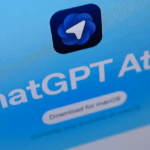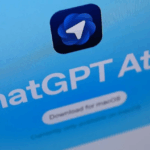
ChatGPT-maker OpenAI has unveiled an artificial intelligence-powered web browser to challenge competitors like Google, which operates Chrome, the most popular browser in the world.
ChatGPT Atlas does away with the address bar, which is a key feature in search, with boss Sam Altman saying it was “built around ChatGPT” as the company made the new browser available on Tuesday on Apple’s MacOS operating system.
The arrival of Atlas comes as OpenAI seeks new ways to monetise its massive bet on artificial intelligence (AI) and capitalise on its growing user base.
OpenAI said Atlas would also offer a paid agent mode that conducts searches on its own for users of its popular chatbot.
The agent mode feature will be available only to paying ChatGPT subscribers. It uses the chatbot to make “improvements that make it faster and more useful by working with your browsing context”.
The company has announced a slew of new efforts to corral users towards its online services, entering into partnerships with e-commerce sites like Etsy and Shopify, along with booking services like Expedia and Booking.com.
At OpenAI’s DevDay event earlier this month, Mr Altman announced that ChatGPT had reached 800 million weekly active users, up from 400 million in February, according to data and research firm Demandsage.
“I believe that early adopters will kick the tyres on the new OpenAI browser,” said Pat Moorhead, CEO and chief analyst at Moor Insights & Strategy.
But, he said, he was sceptical that Atlas would pose a serious challenge to Chrome or Microsoft Edge, “as more mainstream, beginners, and corporate users will just wait for their favourite browsers to offer this capability.”
Microsoft Edge already provides many of these capabilities today, Moorhead added.
OpenAI’s challenge comes a year after Google was declared an illegal monopolist in online search.
In a recent decision aimed at prescribing remedies for Google’s dominance, the search giant was not ordered to spin off its Chrome browser as US Justice Department lawyers had requested.
A growing number of internet users are opting to use large language models (LLMs) like ChatGPT as they search for answers and recommendations.
The research firm Datos said that as of July, 5.99% of searches on desktop browsers went to LLMs — more than double the figure from a year earlier.
Google is also heavily invested in AI, and for the last year has prioritised AI-generated answers to queries in its search results.
- President Commissions 36.5 Million Dollars Hospital In The Tain District
- You Will Not Go Free For Killing An Hard Working MP – Akufo-Addo To MP’s Killer
- I Will Lead You To Victory – Ato Forson Assures NDC Supporters
Visit Our Social Media for More




